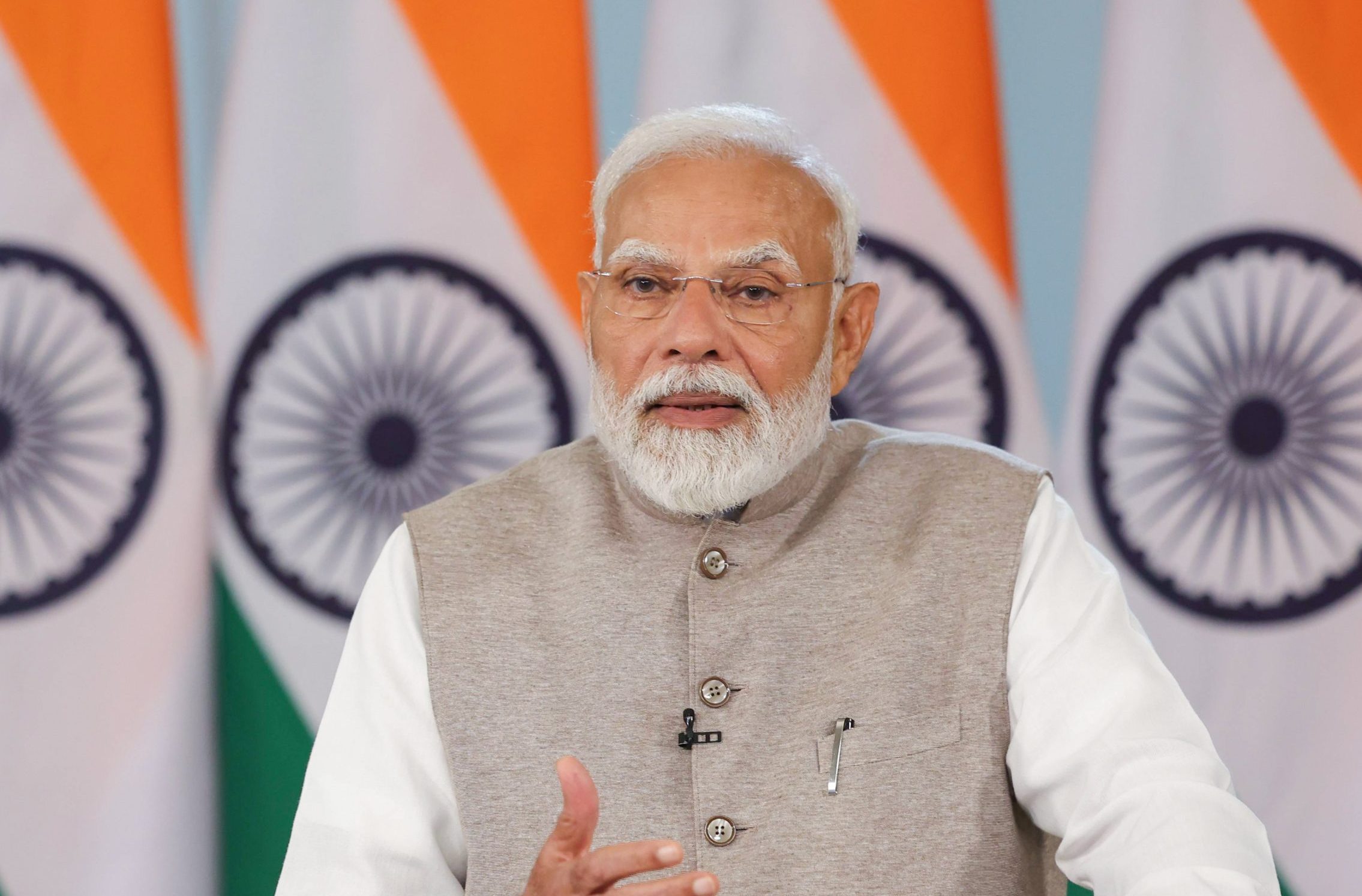Prime Minister Narendra Modi on Monday addressed the International Air Transport Association’s (IATA) 81st Annual General Meeting (AGM) and the plenary session of the World Air Transport Summit (WATS) at Bharat Mandapam in New Delhi, emphasizing India’s emergence as a global leader in aviation and space convergence. Marking the return of the IATA AGM to India after 42 years, Modi showcased the transformative growth of India’s aviation sector, calling it a hub of policy leadership, innovation, and inclusive development.
“Today, India is emerging as a leading force in the global space-aviation convergence,” Modi declared, highlighting the sector’s historic advancements over the past decade. He described India as the world’s third-largest domestic aviation market, with 240 million passengers annually, surpassing the population of most countries. By 2030, this figure is projected to reach 500 million, with air cargo expected to grow from 3.5 million metric tons to 10 million metric tons by the decade’s end.
PM Modi underscored the success of the UDAN scheme, which has enabled over 15 million passengers, many first-time flyers, to access affordable air travel, calling it a “golden chapter” in Indian aviation history. He highlighted the expansion of operational airports from 74 in 2014 to 162 today, with an annual passenger handling capacity of 500 million. Indian carriers have ordered over 2,000 new aircraft, signaling robust growth, while the Maintenance, Repair, and Overhaul (MRO) sector has grown from 96 facilities in 2014 to 154, bolstered by 100% FDI, GST reductions, and tax rationalization.
The Prime Minister outlined three pillars driving India’s aviation sector: a vast, aspirational market; a young, innovative talent pool excelling in AI, robotics, and clean energy; and a supportive policy ecosystem. He highlighted the Protection of Interest in Aircraft Objects Bill, aligning India with the Cape Town Convention, and incentives at Gift City, making India an attractive destination for global aircraft leasing companies. The new Indian Aircraft Act, Modi noted, streamlines regulations and simplifies taxes, presenting significant investment opportunities for international aviation firms.
PM Modi emphasized India’s commitment to sustainability, with investments in sustainable aviation fuels and green technologies to reduce the carbon footprint. He showcased the Digi Yatra app, a paperless, facial-verification-based travel solution, as a model for the Global South, enhancing safety, efficiency, and user experience. “India’s innovations in serving a large population can benefit many countries,” he said.
The Prime Minister highlighted India’s inclusive aviation model, with women comprising 15% of pilots—three times the global average—and 86% of cabin crew, surpassing the global 70% benchmark. Women engineers in the MRO sector also exceed global averages. Modi further noted the role of drone technology in empowering women’s self-help groups in agriculture and delivery services, fostering financial and social inclusion.
Reaffirming India’s commitment to global aviation standards, PM Modi cited alignment with ICAO regulations and the adoption of the Delhi Declaration at the Asia-Pacific Ministerial Conference. He endorsed the Chicago Convention’s principles for open skies and global connectivity, urging stakeholders to ensure air travel is accessible, affordable, and secure.
PM Modi positioned India as a value-chain leader in global aviation, from design to delivery, encouraging companies to embrace “Make in India” and “Design in India.” With a goal to establish a $4 billion MRO hub by 2030, he invited global aviation leaders to invest in India’s rapidly growing sector, which is creating jobs for pilots, crew, engineers, and ground staff.










